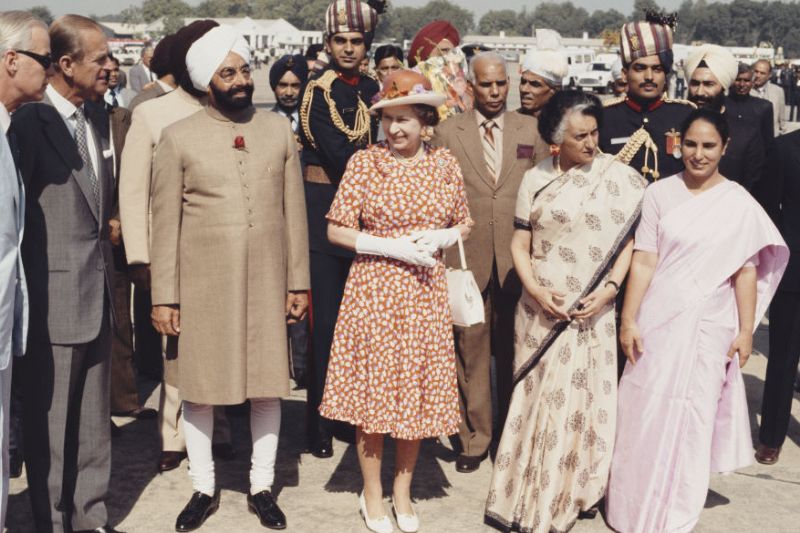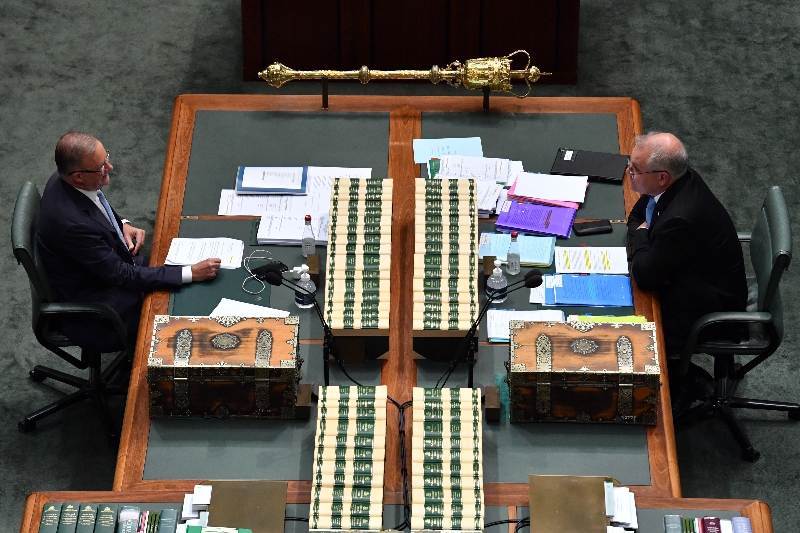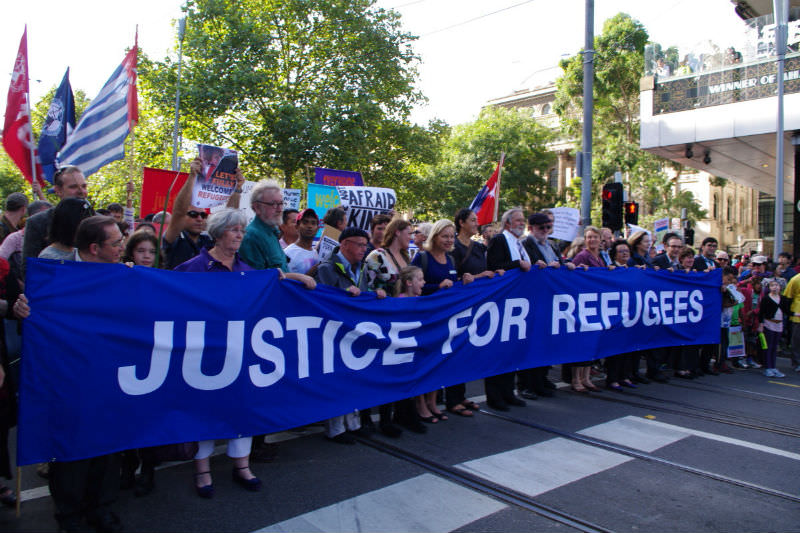Keywords: Economic Benefits
There are more than 200 results, only the first 200 are displayed here.
-

ECONOMICS
- David James
- 12 January 2023
There is a great deal of commentary about the growing importance of artificial intelligence, or AI, especially in business circles. To some extent this is a self-fulfilling prophecy — if people think something will have a seminal effect then it probably will. But if the supposed commercial benefits are significant, the dangers are potentially enormous.
READ MORE
-

AUSTRALIA
- David Halliday, Peter Mares, John Falzon, Nicola Nemaric, Rae Dufty-Jones
- 18 November 2022
1 Comment
Despite rising interest rates and the recent dip in property values, Australia’s housing situation places it among the least affordable property market in the world. With a rise in homelessness and younger Australians locked out of an inflated housing market, what is the way forward for Australia?
READ MORE 
-

ECONOMICS
- David James
- 18 October 2022
3 Comments
The world is facing cross-currents: a collapsing financial system that is balanced by the benefits of massive, long term improvements in production efficiencies, mainly because of technological advances. It is a bad news/good news story that can only be seen accurately if the intractable errors of contemporary economics are jettisoned. We are in a battle between finance fictions and reality.
READ MORE 
-

INTERNATIONAL
- Binoy Kampmark
- 20 September 2022
7 Comments
When more nuanced commentary around the passing of Queen Elizabeth II came to the fore, it was hard to avoid the difficult realities of the British monarchy and an institution that has not, through its history, delighted those conquered in its name. With Elizabeth II, it was notable that she let an opportunity to engage the topic of empire in Britain’s collective memory go begging.
READ MORE 
-

INTERNATIONAL
- David Halliday, Beth Doherty, Tim Dunlop, Matthew Howard
- 26 August 2022
When former Facebook employee Frances Haugen released a trove of documents revealing internal research on the negative effects its social media products were having on mental health, the darker side of social media became hard to ignore. So how might the harmful effects of social media be mitigated into a social benefit for a saner, more coherent society?
READ MORE 
-

AUSTRALIA
- Frank Hurley
- 24 February 2022
1 Comment
Gambling is now a core national industry providing significant employment, profit for private providers and revenue for governments. All good but, as with every form of industry, there are ‘externalities’. In the case of the gambling industry, it is the personal and social costs of ‘problem’ or ‘addicted’ gamblers that must be taken into account.
READ MORE 
-

ECONOMICS
- David James
- 31 January 2022
5 Comments
There is a great deal of commentary about the growing importance of artificial intelligence, or AI, especially in business circles. To some extent this is a self-fulfilling prophecy — if people think something will have a seminal effect then it probably will. But if the supposed commercial benefits are significant, the dangers are potentially enormous.
READ MORE 
-

ARTS AND CULTURE
- Paul Mitchell
- 09 December 2021
18 Comments
Broken first aired on BBC1 in England in 2017. Four years to make it to Australia, but it was worth it. The series is a profound and powerful study of Christianity and what priesthood means, whether for the man holding up the bread at the altar, or that ‘priesthood of all believers’ to which Christianity’s adherents are said to belong.
READ MORE 
-

AUSTRALIA
- Andrew Hamilton
- 23 September 2021
15 Comments
Unlike December 25, September 26 is a World Day that passes by in silence. It calls for the Elimination of all Nuclear Weapons. Nuclear power is too mysterious to understand, too horrific to dwell on, and too far away to take responsibility for. It and its destructive power are unthinkable. And yet it continues to press on us, most recently in the announcement that Australia will build nuclear-powered submarines.
READ MORE 
-

AUSTRALIA
- Andrew Hamilton
- 02 September 2021
11 Comments
As restrictions drag on and the number of infections rises, more Australians are asking when lockdowns can cease. Federal politicians and business leaders have argued the case for a quick ending while claiming the authority of scientists. Science being science, the relevant questions have been tied to numbers. They have asked: how few cases should there be in the community before leaving lockdown? What percentage of the community must be vaccinated before the lifting of restrictions? What number of deaths should be tolerated for the gains of opening the economy? And when precisely should the opening of Australia take place?
READ MORE 
-

ECONOMICS
- Chris Smith
- 31 August 2021
11 Comments
In July, Anthony Albanese announced a significant change of stance on Labor tax policy which was disappointing, if not surprising. An elected Labor government, Albanese promised, would keep the coming high income tax cuts he previously opposed. This decision to not oppose the government proposal to restructure the income tax system through reduced marginal rates is supporting a government policy that will lead to a significant redistribution of wealth towards high income earners.
READ MORE 
-

AUSTRALIA
- Frank Brennan
- 17 August 2021
9 Comments
Last Wednesday, the Senate Standing Committee for the Scrutiny of Delegated Legislation chaired by the Government’s Senator Concetta Fierravanti-Wells tabled a report highlighting problems with a proposed new regulation affecting charities.
READ MORE 